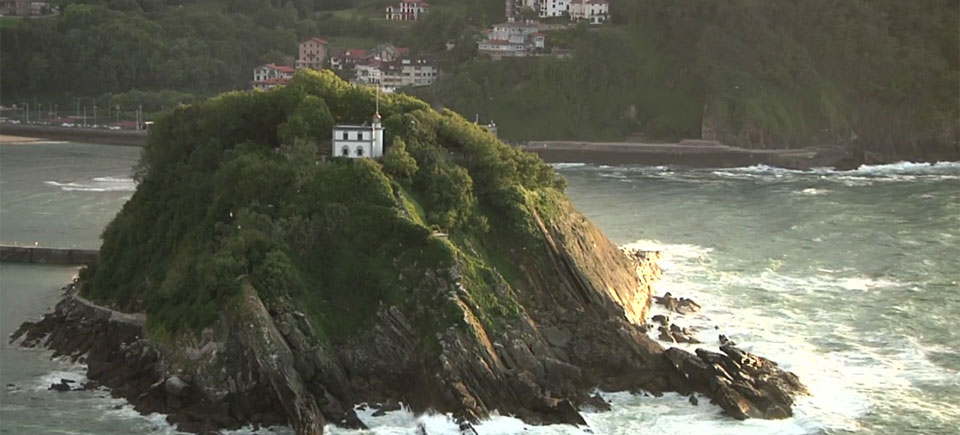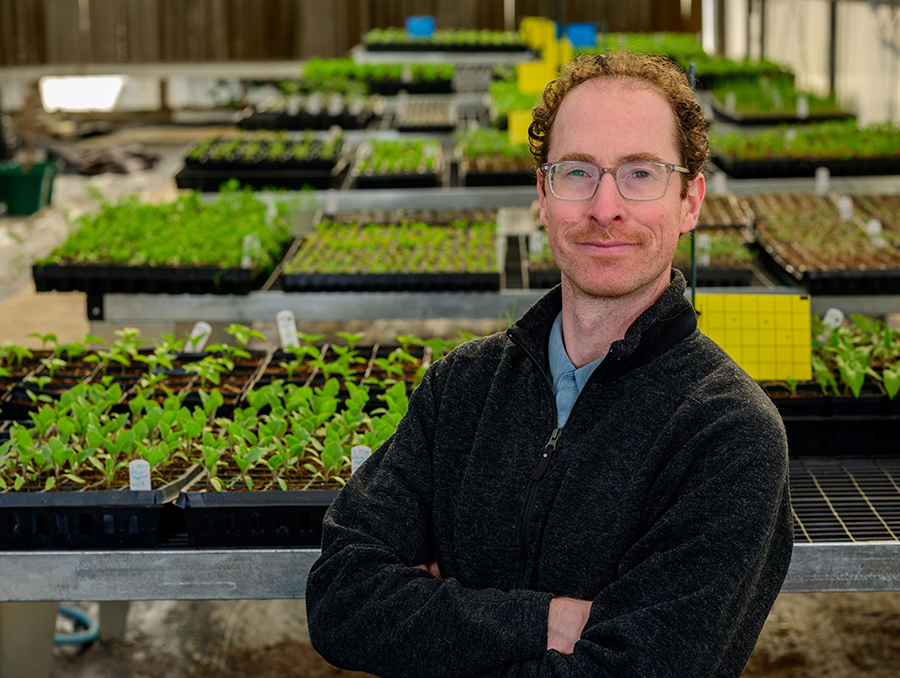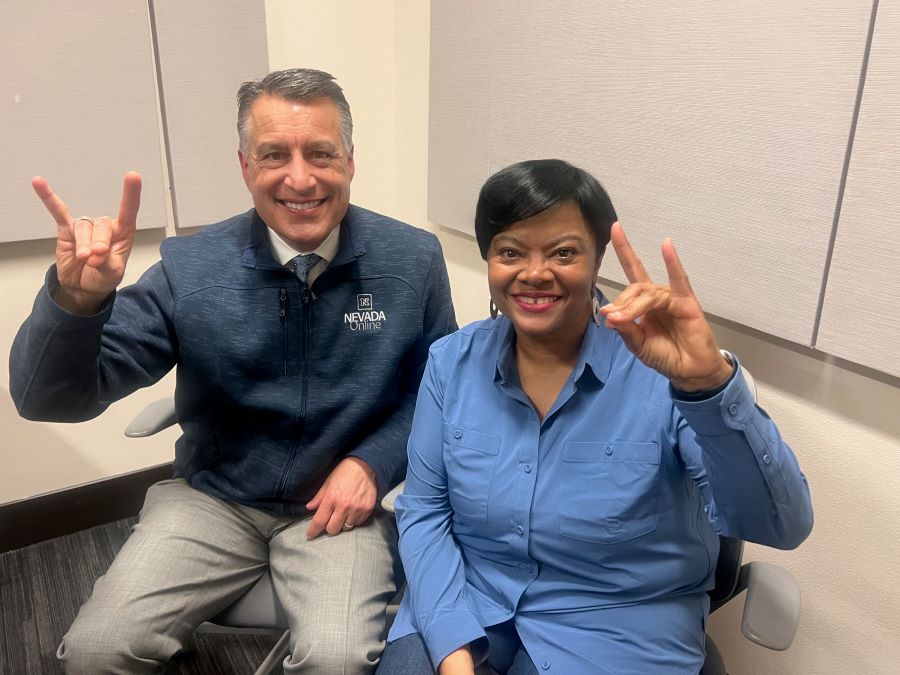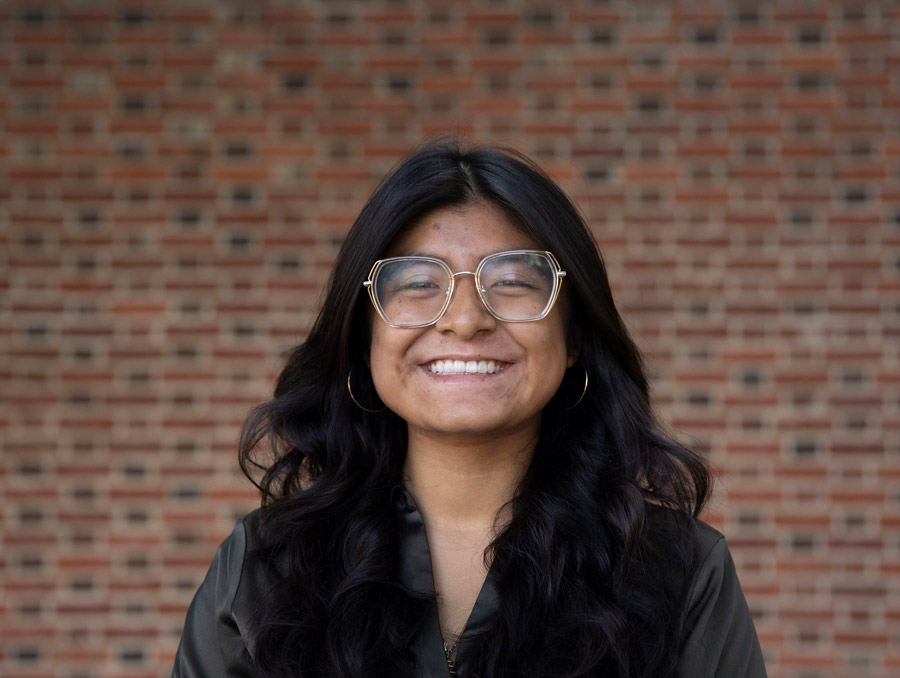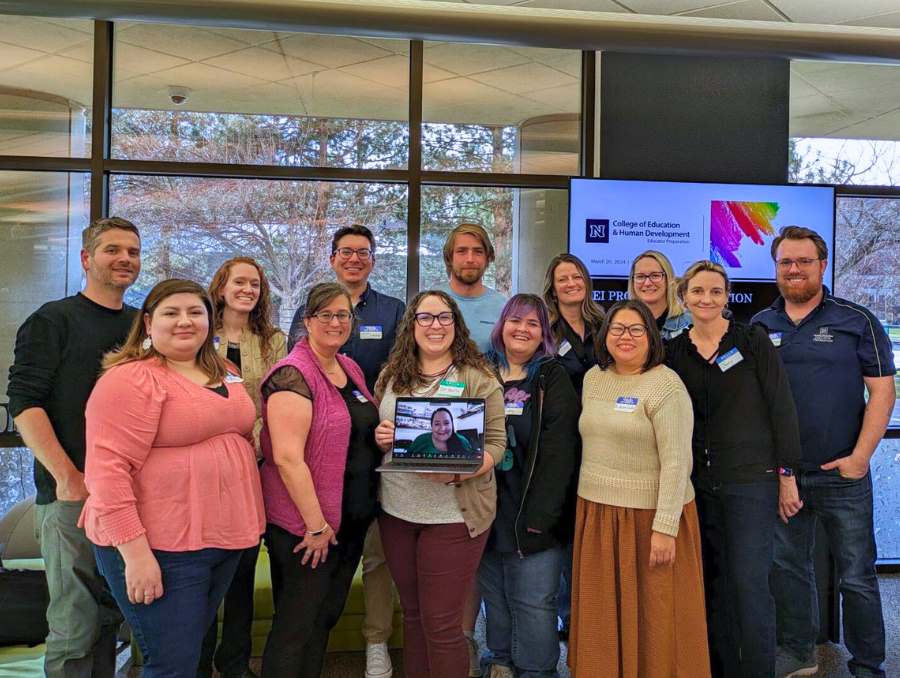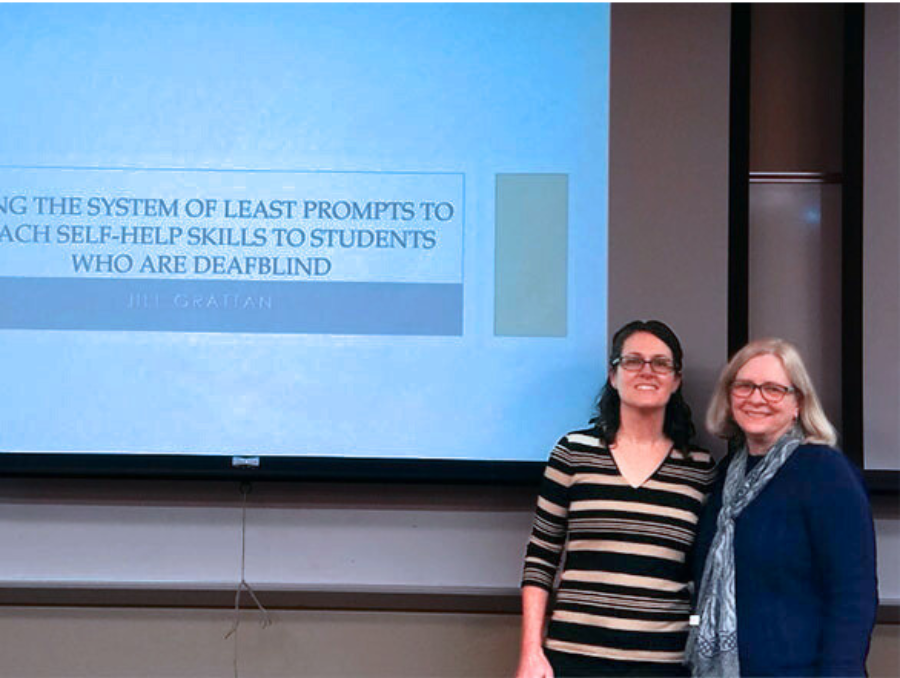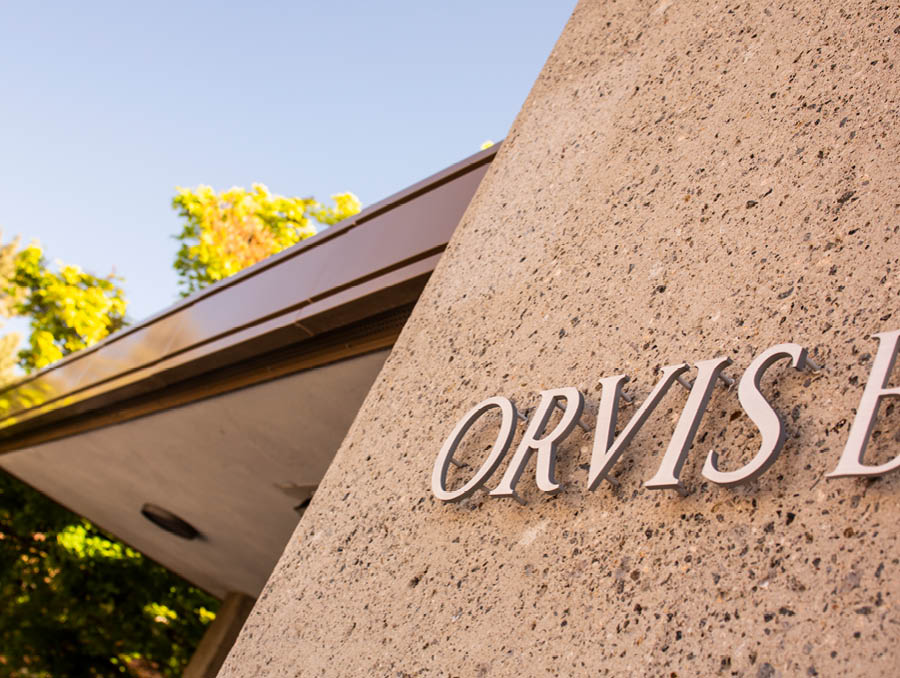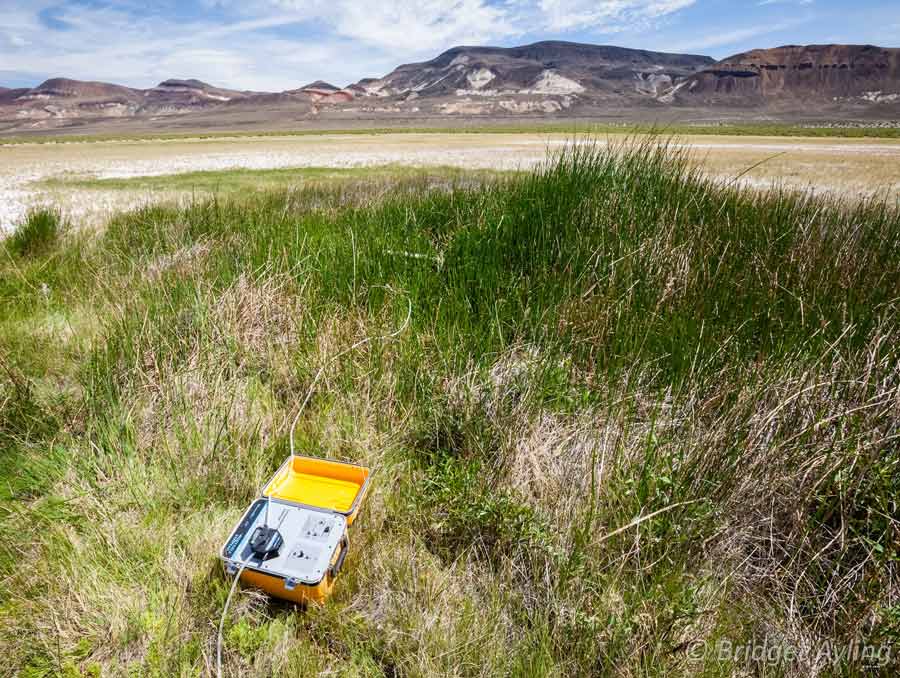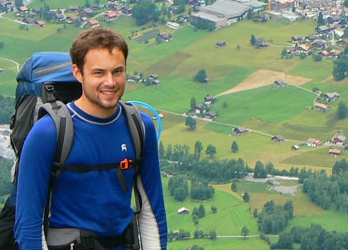
Nevada alumnus Lee Pfalmer is no stranger to international travel. During his years as a civil engineering undergraduate, he traveled several times with Professor Keith Dennett to Central America as part of service missions to build wells in Guatemala.
Learn more about USAC
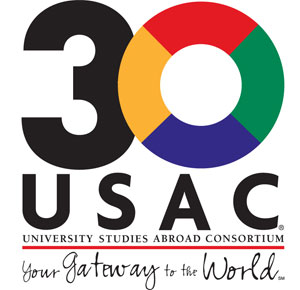
University of Nevada, Reno alumnus Lee Pfalmer experienced a moment last year that only Tom Cruise could sympathize with. His mission, should he choose to accept it, was to circumnavigate the globe, capturing on video nine study abroad locations in four countries, ranging from Chengdu, China to San Sebastian, Spain. And during the nearly three-month trip he would amass hundreds of hours of footage that would require six months of editing.
Needless to say, he didn't need to be asked twice. He only needed to figure out how to obtain the additional pages he would need for his passport.
"I was spending one week in each spot," Pfalmer, 27, a 2007 graduate of the University in civil engineering, said of his April-June 2011 tour of University Studies Abroad Consortium sites. "It was quite an experience."
From Civil Engineering to Video Production
It was an opportunity that resulted from good preparation and a healthy dose of serendipity.
Pfalmer was no stranger to international travel. During his years as a civil engineering undergraduate, he traveled several times with Professor Keith Dennett to Central America as part of service missions to build wells in Guatemala. After graduating from the University, Pfalmer worked as a Christian missionary with Campus Crusade for Christ, traveling in the Middle East.
Following his missionary stint, he returned to Nevada hoping to learn Spanish before seeking his first engineering job. But rather than stay on campus, he opted to learn the language abroad through the University Studies Abroad Consortium, spending a fall semester in Santiago, Chile and a spring semester in Puntarenas, Costa Rica.
International travel wasn't the only thing that came naturally to Pfalmer. During his time with Campus Crusade, he began to dabble in video production. Using a simple, consumer-grade camcorder and cheap software, he stitched together videos from his travels to help promote his missionary endeavors.
"I took my little camera, had a table tripod, set it up on the table, and I'd ask (Campus Crusade participants) questions, to try to get out of them what I had heard naturally on the ride home or at the airport and use it for recruitment for future trips," Pfalmer said. "That was the start of using video. I wanted to show that authenticity that I experienced so that more people would have an emotional response and sign up for trips."
Those videos, along with a promotional video produced by Pfalmer for USAC, eventually caught the eye of the University's Office of Integrated Marketing. Pfalmer was offered work with Integrated Marketing to produce student experience and student success videos for the University's website.
Not long after, Pfalmer found himself producing the University's premier recruitment video and capturing the unforgettable moments of the Wolf Pack's historic 13-1 football season.
An Offer He Couldn't Refuse
That's when USAC came knocking with the offer he couldn't refuse: Nine cities. Nine weeks. Nine million memories along the way. Traveling with only the equipment he could carry on his back, Pfalmer departed from San Francisco International towards Shanghai, China. He would return nine weeks later to Reno.
Of all the spots that Pfalmer visited, three retain a particularly special place for him: Shanghai, China; Viterbo, Italy; San Sebastian, Spain.
Of his visit to film USAC's presence in Shanghai, Pfalmer said: "Shanghai is like the New York of China. It's just huge, unbelievably large, with tall buildings, lights everywhere, everything moving very fast. That was definitely a notable time. The Shanghai video was the first I made."
Viterbo, by contrast, was a much more deliberate, slower-moving place: "Viterbo is about two hours north of Rome; it's a medieval, picturesque city, surrounded by old walls. It's all cobblestone streets, a place where if you go to a little restaurant, there is stonework and huge pieces of timber that date back to when the city was first founded." Pfalmer said he remembered one restaurant where the "Mediterranean sense of time, where relationships more important than time," was clearly in evidence. "The waiter recommended fresh pasta made by his mother, and his brother was working the front counter," he said. "It was the classic Italian family taking care of each other. I remember thinking, 'Wow, Italy's really like this.'"
San Sebastian struck Pfalmer not only for its coastal location but for its communal sensibility: "San Sebastian is a picture-perfect coastal city. Unlike a lot of cities, they didn't build homes and run out of room, and built up; they just built apartments. This is just my observation, but the feel is that everybody is on top of everybody, and the streets are the communal interaction areas, where everybody hangs out. There are kids and chairs out in the streets and the coast is right there. I loved it there."
The Quest for Authenticity
The challenge for Pfalmer, whether it is chronicling some of the world's great studies abroad locations, or finding ways to give the world a glimpse into the life of the University, has always boiled down to a simple question.
"It really goes back to, 'why create the video?'" Pfalmer said. "What's the point of making the video? Video is a great way to compress a week, or a few days, into three minutes. All of my videos are like movie trailers, teasers, hooks, to get the audience to find out more about the experience.
"The point of the video, if it's successful, is to create some sort of emotional reaction from the viewer that leads to action. If it leads to an action, then it's a success."
"Authenticity" is a phrase that comes up often in conversation with Pfalmer, and it is one of the recurring features in the videos he produces. He said that as a video storyteller, the feel should be something along the lines of, "like you've sat down with someone and you are sharing your experiences. If I can capture that authentic experience, and do interviews that are always based on reality, then usually the story will be something that the audience can relate to, and will hopefully be moved to action to find out more."
Pfalmer is the first to admit that his career path hasn't been exactly what he envisioned when he graduated in 2007. If anything, he said, his degree and the work he does today are linked. In a very real sense, he said, he uses the problem-solving techniques he learned in engineering classes as he goes out on one-man assignments to film new stories.
"I tell people that I 'engineer' videos," Pfalmer said with a smile.
The Value of a Nevada Degree
But more than that, Pfalmer said his time at the University, both in and out of the classroom, has proven to be valuable. In addition to his work with Campus Crusade for Christ, Pfalmer was part of the Student Orientation Staff and played an active role in his fraternity.
"It was part of the remarkable student experience," he said. "I was recruiting people to come to whatever part of what organization I was part of. So it was more than going to classes. Your time at the University gives you four years to engage with other students, to engage with social and service organizations.
"That was an important part of my student experience. In my fraternity, it required a lot of organizational structure to make it function, and take on positions within the fraternity. In a lot of ways, it was a four-year practice run for the business world; when you're done with your four years, you've learned already how to deal with people. And working with people is so critical in the real world.
"If you take that opportunity while you're an undergraduate, it opens up so many more opportunities and experiences for you."
From the first few videos he produced, to traveling the world and telling a broader story, to returning to the campus to further capture the student experience at the University, Pfalmer said he's still a little surprised by how it has all turned out for him.
In many ways, he has "engineered" a personally enriching and fulfilling career.
"Fulltime work in video seemed like such a pipe dream," he said. "I didn't want to put my hopes into that. I billed it as a hobby, a passionate hobby. And now that I'm doing it fulltime, I think to myself, 'Wow, this is pretty cool.'
"I had no idea that a degree in civil engineering would lead to this. When you leave here with your four-year degree, you have your classes and you have your social experiences. It opens up many more doors than your degree alone. It's up to you to make sure you get involved, because it can really make a great difference. I know in my case, you can graduate with a degree in civil engineering, and if the right circumstances are right before you, you'll be able to take that opportunity and run with it."
From Reno, to Shanghai, to Viterbo, to San Sebastian. And all the points in between.
